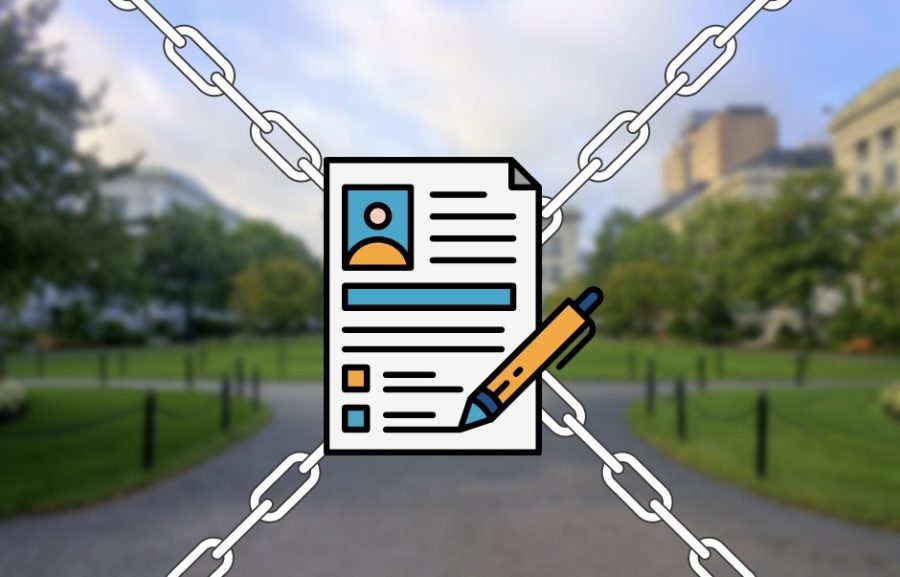Colleges are evil.
Some institution run by a billionaire philanthropist rakes in hundreds of thousands of dollars from ever-poorer students trying to make a living in a shrinking job market. Then, $100,000+ poorer and four years older, these students end up working at Target for $14 an hour. It’s a vicious cycle that perpetually tortures the youth of our society.
There’s an escape, though.
For much of our lives, we are taught to revere the Ivy League schools—the solid teflon of the education industry and the bastion of job security. These schools, advertised by their low acceptance rate and notable alumni, serve as stretch goals for high school students, motivating them to keep their grades high and participate in extracurricular activities.
Of course, that’s the narrative they want you to believe.
In the real world, accepted students are the pinnacle of intellect (and usually, wealth). Topping the classes of the most competitive secondary institutions, Ivy League students scarcely see a GPA below 4.0 and are expected to spend every second of their free time as community leaders, sometimes doing the things they love, but sometimes doing things for the application. Ivy students are the smartest, richest students in the world.
There’s another equally-motivated student demographic right below them, though.
There are students who put their best foot forward in school, but, for whatever reason, falter at some point. These students are high-achievers, good test-takers and motivated. They spend their time at the gym, pacing the practice room hallway, or focusing in the art room, paintbrush in hand. These kids pursue their interests, like the college-driven students, but don’t look for activities that will boost their applications.
There is nothing wrong with either type of student. Both are driven in their own regard and have the full capacity to live fulfilling lives after high school.
Ivy Leagues value both groups too, just in different ways.
While college-driven students are seen as the future of the world and the chosen few to attend Ivy League schools, passion-driven students have a more torturing purpose. Ivies see these students—intelligent enough to consider these highly-selective institutions, yet uninformed enough to delude themselves into applying—as nothing more than earning potential.
Ivies use these students to harvest millions of dollars in application fees and drive down their acceptance rates.
See, sometime in the Spring, my friend, going by Alex, started receiving emails from Harvard and Yale. Excitedly, she added them to her Common Application list, with a“Why not?” attitude. She was thrilled at the prospect of attending a long-revered Ivy League.
The problem? She had a 3.0 GPA.
She was riding high from her above-average ACT score and thought that her writing could compensate for her assuredly-not-Harvard GPA. She was already mentally strolling through the college town of Cambridge with a Starbucks latte in hand. The more she looked into it though, the more cracks started to show in their facade. She read their admission statistics, a sea of 4.0s and higher. She read that Harvard receives enough applicants with a perfect ACT score to fill their Freshman class three times over. There was no way she would get in, she knew that much. But what if she did? Why would they bother wasting marketing money on her if not because they were interested? It’s worth $90 to live regret-free for the rest of her life, right?
She got baited. So did roughly 80,000 other students.
Harvard, Yale, Princeton, Duke, Northwestern and nearly every other university with an acceptance rate below 10% regularly recruit students from this passion-driven group, take their application fees, reject them with little consideration and reinvest in advertising to do the same thing the following year. It’s a torturous cycle that serves the rich and preys upon the dreams of students. It is evil.
These institutions get ahold of high-achieving students with unimpressive GPAs just to reject them. Washington Post writer Amanda Graves explained this process. “[Ivy Leagues] contact many more students than they’ll accept, buying names for less than 50 cents a pop from places like the College Board, which has data on students’ PSAT or SAT range, self-reported GPA, ethnicity, religion and potential major,” Graves described. “Swarm them with enough love and attention and eventually, some will succumb to the appealing notion that they’re good enough for top college X, Y or Z.”
This tactic is no secret, either. Since 2011, students have been playing a game of falling for the messages colleges send to them. Even as graduation rates fell in the early-2010s, application rates skyrocketed inversely as more students fell victim to the Ivies’ marketing.
Alex and Graves aren’t the only people that have been affected.. PV Alumni Madyline Fox had an equally-horrible experience with applying to top-level schools. “I applied to an Ivy League college for my bassoon. I had talked with the college before and they said they would love to have me because of my musical abilities. As soon as I applied I got rejected due to my GPA. Rice University was one of my top colleges I wanted to go to. They said that, even with the scholarships I have, it wouldn’t be enough for me to get in.”
Furthermore, with the Common Application, an application that is accepted by most universities, many students put little thought into applying to these schools, letting them harvest even more money from them. Students only have to pay the application fee and fill out a few questions, and their application is off to the desks of Ivy League admissions officers. It takes so little effort that, to many students, it’s worth it to exhaust all possibilities for their futures.
In a time of economic instability and rising tuition costs, many employers are questioning Ivy League degrees as well. Some employers cite the rise of “wokeness” as a deterring factor, while others cite unrealistic expectations of the real world due to the artificial environments of New Haven, Cambridge, and other Ivy League towns. Regardless, the importance of an Ivy League degree seems to be diminishing, so before sending Harvard $90 only to drive their acceptance rates up, think about value over prestige.









